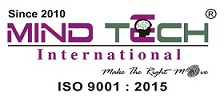
Choosing the right career path is one of the most important decisions in a person’s life. Career counseling plays a crucial role in guiding individuals toward professions that align with their skills, interests, and abilities. In recent years, Dermatoglyphics Multiple Intelligence Test (DMIT) has emerged as a scientific approach to career counseling, challenging the traditional counseling methods. This article explores DMIT vs. traditional career counseling to determine which is more effective.
What is DMIT?
DMIT is a biometric-based assessment that analyzes fingerprints to determine an individual’s innate talents, intelligence distribution, and personality traits. This method is based on neuroscience, genetics, psychology, and dermatoglyphics, providing deep insights into a person’s cognitive abilities and learning styles.
Key Benefits of DMIT
- Scientific and Accurate Analysis – DMIT is based on fingerprint patterns, which remain unchanged throughout life, ensuring precise results.
- In-Depth Understanding of Multiple Intelligences – It evaluates logical, linguistic, musical, kinesthetic, and spatial intelligence, helping individuals choose the right career path.
- Personalized Learning and Career Guidance – By identifying a person’s dominant intelligence type, DMIT recommends careers that suit their natural abilities.
- Non-Biased Approach – Since DMIT is data-driven, it eliminates subjective opinions and biases.
- Early Career Planning – DMIT is beneficial for children, helping parents and educators shape their educational journey from an early age.
What is Traditional Career Counseling?
Traditional career counseling involves one-on-one sessions with a career counselor, who assesses an individual’s interests, skills, and aspirations through interviews, psychometric tests, and discussions. The counselor then provides guidance based on educational qualifications, market trends, and personal preferences.
Key Benefits of Traditional Career Counseling
- Human Interaction and Emotional Support – Career counselors provide personalized guidance and motivation.
- Flexibility in Career Choices – Unlike DMIT, traditional counseling considers changing interests and evolving career goals.
- Real-Time Market Trends and Job Opportunities – Counselors are well-informed about industry demands and future career prospects.
- Guidance Beyond Personality Traits – Traditional counseling evaluates academic records, extracurricular activities, and work experience.
DMIT vs. Traditional Career Counseling: A Comparative Analysis
| Feature | DMIT | Traditional Career Counseling |
|---|---|---|
| Scientific Accuracy | High – Based on fingerprint analysis | Moderate – Based on subjective evaluations |
| Customization | Highly personalized | Customizable, but relies on counselor’s knowledge |
| Career Guidance Approach | Focuses on inborn talents and intelligence types | Considers education, interests, and industry trends |
| Suitability for Young Children | Yes – Helps parents plan early | No – Suitable for high school and college students |
| Market Trend Awareness | Limited – Does not include job market trends | High – Counselors have industry insights |
| Emotional Support | Lacks human interaction | Provides emotional and psychological guidance |
Which Career Counseling Method is More Effective?
Both DMIT and traditional career counseling have their advantages, and their effectiveness depends on the individual’s needs:
- DMIT is best for early career planning, as it provides insights into a child’s natural abilities and learning styles.
- Traditional career counseling is ideal for individuals who need market-driven career advice and emotional support.
- A combination of both methods can be the most effective approach, where DMIT provides self-awareness, and traditional counseling offers practical career guidance.
Conclusion: Choosing the Right Approach
The decision between DMIT and traditional career counseling depends on personal preferences and career goals. DMIT offers a scientific, unbiased analysis of a person’s innate abilities, making it ideal for early career planning. On the other hand, traditional career counseling provides personalized guidance based on evolving interests, real-world experience, and job market trends.
For the best results, individuals can combine both approaches to gain comprehensive career insights and make well-informed decisions.


